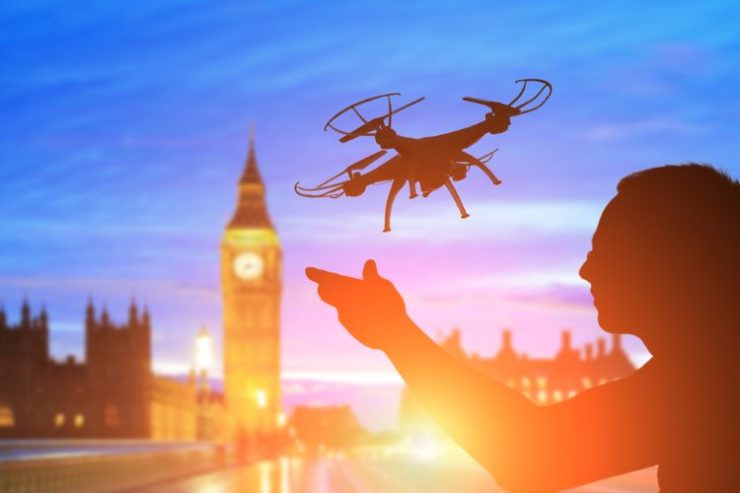The UK Civil Aviation Authority (CAA) has announced it is to delay the introduction of the European Commission Implementing Regulation (IR) relating to the procedures and rules for the operation of unmanned aircraft until November 2020. The IR was due to come into force in July 2020, outlining three operating categories which provide the ‘operation-centric’ regulations developed to support UAS operations. The CAA announcement is the result of anticipated postponement of the European legislation due to COVID-19.
Further details are included in the CAA press release:
We are aware that the European Commission(EC) is also considering a postponement to the IR’s applicability date but the decision on this, and hence the final length of the delay period, is not likely to be made for a number of weeks yet. We have taken the decision now so that we can provide a reasonable degree of certainty for you all, rather than continue to work towards the original 1 July applicability date and then change at the last minute.
It is quite possible that the EC may subsequently delay the applicability beyond 1 November, and we will notify you accordingly if this is the case. Rest assured, however, that the date from which any person involved in the operation of UAS within the UK will need to comply with the IR will not be before 1 November 2020.
Our guidance within CAP1789 (The EU UAS Regulation Package – Outline) is being updated to reflect this applicability date change, along with a number of other developments since its original publication, and will be published very shortly. The relevant dates within CAP722B will also be changed appropriately, as will the relevant aspects of the CAA Scheme of Charges.
Reduction in flying currency: Understandably in the current situation UAS operators/remote pilots have found it increasingly difficult to maintain their two hours of flying currency within the last three months, leading up to the renewal of their Permission or Exemption.
We require these hours so that remote pilots retain the necessary skills required to operate unmanned aircraft safely. It also helps to make sure systems are in good working order prior to conducting operations by having any required software updates downloaded, installed and tested, as well as ensuring batteries are in a safe condition for flight.
As an interim measure, we will now require operators/remote pilots to use their unmanned aircraft for one hour, prior to undertaking any operation. This allows operators to check their unmanned aircraft is performing correctly following a period of storage. Remote pilots will also be required to undertake a minimum of one take-off and landing to ensure they have refreshed their competence of operating unmanned aircraft, and to make sure they are working to the processes and procedures defined in their relevant operations manual. Records/logs for these flights must be maintained for the UAS Unit to check compliance during any future oversight audits.
We will let you know when his interim measure will cease once the UK Government has lifted the COVID-19 restrictions.
Temporary priorisitation: We normally only prioritise applications from the Police, Fire or Ambulance Services. All other applications are reviewed on a first come, first served basis.
However, following queries about putting in place prioritisation for use of UAS for COVID-19 work we believe it is appropriate to also prioritise these applications.
The CAA will prioritise applications that have the most potential to mitigate harm from the COVID-19 outbreak. In assessing these we will only prioritise applications where the operator has had their services specifically requested by one of the following organisations in relation to COVID-19:
- UK National Health Service Hospital or NHS Trust;
- UK Police Service;
- UK Fire Service;
- UK Ambulance Services or;
- Applications that have been specifically recommended/requested by a Government department.
We cannot guarantee priority of any application. This interim measure may affect the processing times of other, non-COVID-19 related, applications.
The process for submitting applications remains the same. We ask operators to use SRG1320, which is the form for Applications for Exemption or Permission for Operation of Unmanned Aircraft Systems (UAS) in UK Airspace to the CAA.
In Section 10 of this form (titled Additional Information) please state that you have had services requested from one of the organisations indicated above and include evidence of this in your documentation. This will enable the team to prioritise the assessment of the application appropriately.
Additional guidance: CAP 722A outlines how an applicant completes a safety assessment as part of the application process for a permission or exemption.
This prioritisation will remain in place until the end of May 2020, at which point it will be reviewed and renewed if appropriate.
For more information visit:
https://www.caa.co.uk/Consumers/Unmanned-aircraft/Our-role/Updates-about-drones/
http://publicapps.caa.co.uk/docs/33/CAP1789%20EU%20UAS%20Regulations-Guidance.pdf




